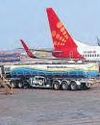
The U.S. and China are in a high-stakes race, with the energy security of America and its allies hanging in the balance. It involves batteries made from the same sodium found in table salt. In both countries, researchers and companies are working furiously to make batteries that rely on a very different starting material than the lithium-ion batteries currently powering everything from our cellphones to our power grids.
Such a battery could break China's near monopoly on crucial battery-making elements at a time when trade tensions and America's electric storage needs are on a collision course.
Instead of lithium, this nascent battery tech uses a sodium compound called soda ash, which can be produced using table salt. Unlike lithium, sodium is easily accessible everywhere. Even better for the U.S. is that China must synthesize soda ash from salt, while it is cheap and plentiful here. In fact, with 92% of the world's reserves, you might even say that the U.S. is the Saudi Arabia of the stuff.
Researchers and entrepreneurs have twice failed in their attempts to turn the U.S. into a battery-making powerhouse. They are more optimistic this time, partly because they've teamed up with a bipartisan group of policymakers that is armed with incentives enacted by the current administration, and expected tariffs in the coming one.
Securing the gargantuan quantities of batteries the U.S. will need in the future is critical, given the transition to electrified transportation, as well as the essential role that battery storage has and will play in the reliability of our electrical grid.
Experts who have worked on previous revolutions in energy storage say this latest technology gives the U.S. a third crack at the problem—and that we might not get another.
A consortium of six national laboratories and eight universities just received a $50 million grant from the Energy Department to advance this technology.
Bu hikaye Mint Mumbai dergisinin December 23, 2024 sayısından alınmıştır.
Start your 7-day Magzter GOLD free trial to access thousands of curated premium stories, and 9,000+ magazines and newspapers.
Already a subscriber ? Giriş Yap
Bu hikaye Mint Mumbai dergisinin December 23, 2024 sayısından alınmıştır.
Start your 7-day Magzter GOLD free trial to access thousands of curated premium stories, and 9,000+ magazines and newspapers.
Already a subscriber? Giriş Yap

India should try the Amul model for all agricultural commodities
The cooperative model behind Amul's success needs to be adopted across India's farm sector. It'll ease credit for farmers too

At long last, the UK is shooting for the moon on clean energy
An ambitious plan revives hope but it will be a race against time
Fuel efficiency norms could accelerate clean mobility
Tighter carbon emission standards should push automakers to sell greener vehicles overall

Rupee's managed float: Should RBI shift gear?
To Mint Street's credit, India resolved a macro trilemma in its own special way. Recalibrate it for a more market-priced rupee if the expected trade gains outweigh price-stability risks.
Escaping India within India is an exorbitant exercise
The wealthy in Gurgaon pay mind-boggling prices to keep real India out of their lives. But it doesn't happen
Can we use today's geopolitical chaos to uplift India's economy?
Successful economies have geopolitics to thank but India may be letting its opportunity slip away

WHAT THE MARKET TAUGHT INVESTORS IN 2024
In multiple pockets of the market this year, new trend chasers learnt some very old lessons
IOC probes bribery allegation of US cos
State-owned Indian Oil Corporation (IOC) has begun a probe into allegations of a US speciality chemicals firm bribing its officials 15 years ago to obtain contracts to supply catalysts, according to a company's regulatory filing.

India could be key SAF producer: lata
India has the potential to be a key producer of sustainable aviation fuel by utilizing its ethanol supplies and availability of lipid feedstocks like non-edible industrial oils, according to a senior official at the global airlines' grouping IATA (International Air Transport Association).

Akasa to add more planes this fiscal
Akasa Air is in continuous discussions with Boeing on aircraft deliveries and expects to add a few more planes to its fleet in the current fiscal ending March 2025, the airline's chief Vinay Dube has said.